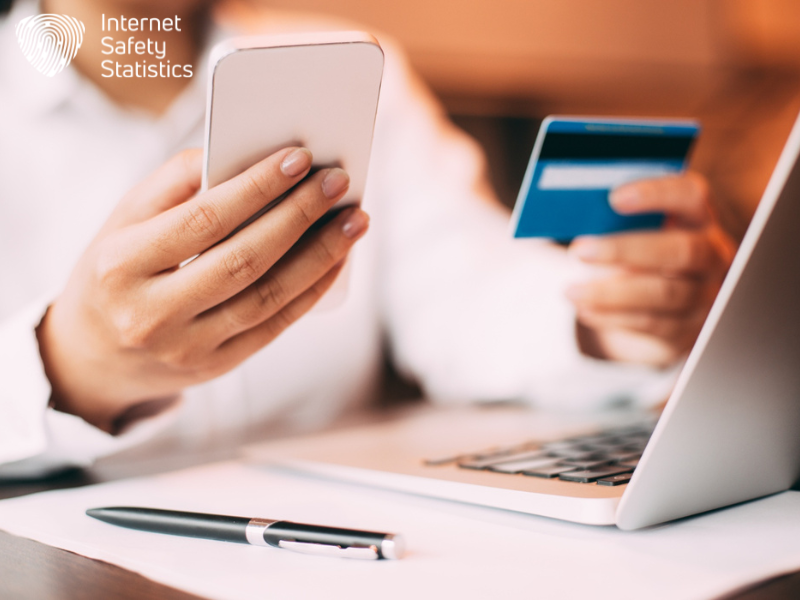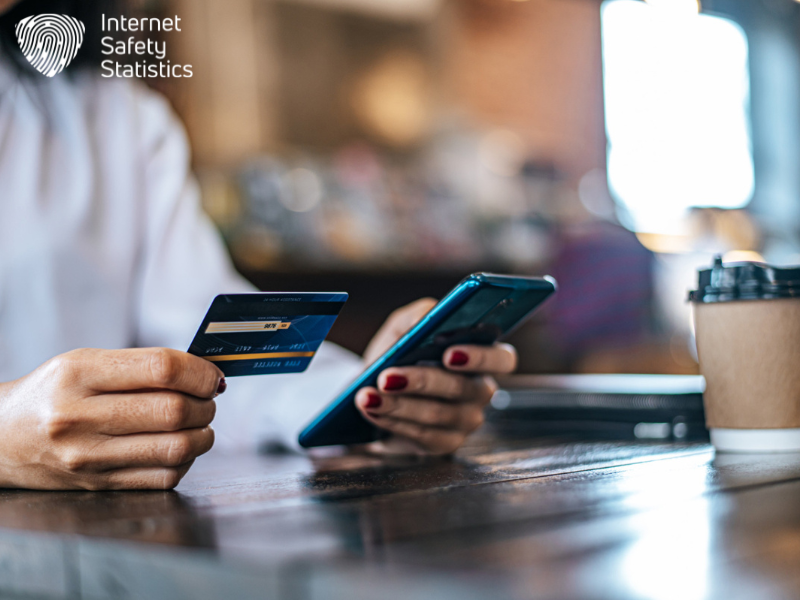
Safeguarding your financial information. Data breaches and cyberattacks are a constant threat, and protecting your hard-earned money requires vigilance. Don’t let online banking become a source of stress! This blog equips you with essential tips and best practices to secure your online banking experience. Learn how to create strong passwords, utilise two-factor authentication, and navigate the online world with confidence. Take control of your financial security and enjoy the peace of mind that comes with a well-protected online banking system.
Table of Contents
The Importance of Online Banking Security

Securing your online banking is crucial to protect your financial information from hackers and scammers. Without proper security measures, you could be at risk of identity theft, fraud, and unauthorised access to your accounts.
Be aware of common scams and take steps to ensure the safety of your online transactions.
Risks of Not Securing Your Online Banking
Neglecting your online banking security can lead to serious risks. You expose your financial information to potential threats every time you log in without proper safeguards.
- Unauthorised access: Hackers may gain control of your bank accounts if you don’t use strong passwords or enable two-factor authentication.
- Identity theft: Cybercriminals can steal your personal details and impersonate you to commit fraud or other illegal activities.
- Financial loss: Without secure practices, you risk losing money through unapproved transactions or cyber theft.
- Compromised personal data: Sensitive information such as home addresses and phone numbers could become accessible to strangers.
- Scam vulnerability: Failing to protect yourself from phishing scams increases the likelihood of inadvertently handing over login credentials to scammers.
- Stress and hassle: Experiencing fraud or identity theft often means spending a considerable amount of time and effort to resolve these issues.
- Loss of privacy: If attackers access your account, they could invade your privacy by tracking your spending habits and personal transactions.
- Damaged credit score: Fraudulent activities under your name could harm your credit rating, affecting future loans and financial opportunities.
- Legal consequences: In some cases, failure to safeguard your account might lead you into legal troubles if it’s used for illicit purposes without your knowledge.
Common Scams to Be Aware Of
Neglecting to secure your online banking can make you vulnerable to various scams. It’s crucial to be aware of these common scams to protect your financial information. Here are some scams to watch out for:
- Phishing emails that trick you into revealing personal information or login credentials by posing as legitimate entities, such as banks or government agencies.
- Fake websites that mimic official banking sites and prompt you to enter sensitive information, leading to identity theft and fraud.
- Social engineering tactics where scammers manipulate individuals into divulging confidential data through persuasive communication.
- Malware and ransomware attacks can compromise your device and steal banking details or extort money from you.
- Smishing (SMS phishing) scams involve fraudulent text messages prompting recipients to click on malicious links or provide personal data.
Tips for Strong Online Banking Security
Ensure your online banking security by using strong, unique passwords for each account and enabling two-factor authentication for added protection. Regularly updating your passwords is also key to keeping your financial information safe from cyber threats.
Use Strong and Unique Passwords
Creating strong and unique passwords is crucial for protecting your online banking accounts from unauthorised access. Be sure to use a combination of uppercase and lowercase letters, numbers, and special characters in your password to enhance its strength.
Avoid using easily guessable information such as birthdays or simple words, as these are more susceptible to hacking attempts.
Utilise passphrases instead of single-word passwords to add an extra layer of security. For instance, combine unrelated words along with symbols or numbers to create a complex yet memorable passphrase.
Enable two-factor Authentication
Use two-factor authentication to add an extra layer of security to your online banking accounts. This feature requires a second form of verification, such as a code sent to your mobile device, in addition to your password.
By enabling this, you prevent unauthorised access even if someone has obtained your login credentials.
Adding two-factor authentication enhances the protection of your financial information online. It significantly reduces the risk of unauthorised access and provides an additional barrier against potential cyber threats.
Regularly Update Your Passwords
After enabling two-factor authentication for your online banking, it’s important to regularly update your passwords as an additional layer of security. Consistently changing your passwords can help safeguard your financial information from potential cyber threats and unauthorised access.
By updating your passwords regularly, you reduce the risk of account compromise and enhance the overall security of your online banking accounts.
To maintain a high level of protection, consider using a password manager to assist in creating and managing strong, unique passwords for each online account. Regularly updating your passwords is crucial in staying one step ahead of hackers who may attempt to exploit outdated login credentials.
Avoiding Common Risks and Scams
Protect your online banking by never sharing your passwords with anyone, always being cautious of phishing emails, and avoiding logging into your account on public WiFi.
Never Share Your Passwords
To secure your online banking, never share your passwords with anyone. Protecting your financial information starts with keeping your login credentials confidential. Using strong and unique passwords helps safeguard your accounts from unauthorised access, ensuring that only you have control over your online banking transactions.
When it comes to maintaining security in the digital age, password protection is key.
Never disclose sensitive information, such as passwords, to maintain the integrity of your online banking accounts. It’s essential to protect yourself from potential cyber threats by not sharing this vital data with anyone else.
Don’t Log Into Your Account on Public WiFi
When it comes to online banking security, always remember to avoid logging into your account on public WiFi. Public WiFi networks can be vulnerable to hackers who may intercept your personal information and compromise the security of your online banking transactions.
Protect yourself by refraining from accessing your financial accounts while connected to public WiFi, and instead opt for a secure and private network environment.
Utilising public WiFi for online banking transactions poses a significant risk to the security of your financial information. Hackers can exploit these unsecured networks, potentially leading to unauthorised access to your sensitive data.
Be Wary of Phishing Emails
Look out for phishing emails as they may attempt to trick you into revealing your online banking credentials. Avoid clicking on any suspicious links or providing personal information through email.
Always verify the sender’s address and be cautious of urgent requests for sensitive details.
Take notice of any discrepancies in the email, such as misspelt words, unprofessional formatting, or unexpected attachments that could potentially contain malware. Stay vigilant and report any suspected phishing attempts to your bank immediately to protect yourself from potential fraud.
Additional Security Measures

Use a password manager and set up alerts for account activity, to further enhance the security of your online banking. To learn more about these additional measures, keep reading!
Use a Password Manager
Employ a password manager to securely store all your complex and unique passwords. By utilising a password manager, you can generate strong passwords for each of your online banking accounts and ensure easy accessibility while maintaining top-notch security.
This tool enhances financial safety by providing an encrypted platform for storing login credentials, safeguarding them from potential breaches or unauthorised access attempts.
Utilising a password manager adds an extra layer of protection to your online banking security practices, helping to mitigate the risk of identity theft and cyber fraud. With this tool, you can effortlessly manage and update your passwords regularly without the hassle of memorising them.
Set Up Alerts for Account Activity
- Receive notifications for every transaction made on your account, allowing you to monitor your finances closely.
- Set up alerts for large transactions to be notified when unusually high amounts are withdrawn or transferred from your account.
- Enable alerts for failed login attempts to safeguard against potential unauthorised access to your online banking.
- Utilise alerts for low balance notifications, ensuring you are aware of any unexpected drops in your account balance.
- Activate alerts for changes in personal information associated with your accounts, providing added protection against identity theft.
- Utilise real-time alerts for ATM withdrawals, helping you keep track of physical transactions on your account.
- Use alerts for international transactions to monitor and confirm any overseas purchases or withdrawals made using your accounts.
Conclusion: Ensuring Financial Safety with Secure Online Banking
Ensuring financial safety means taking proactive steps to secure your online banking. Use strong, unique passwords and enable two-factor authentication for added security. Avoid common risks such as sharing passwords and logging into your account on public WiFi.
Protect your financial information by staying alert and implementing additional security measures like using a password manager and setting up alerts for account activity.
